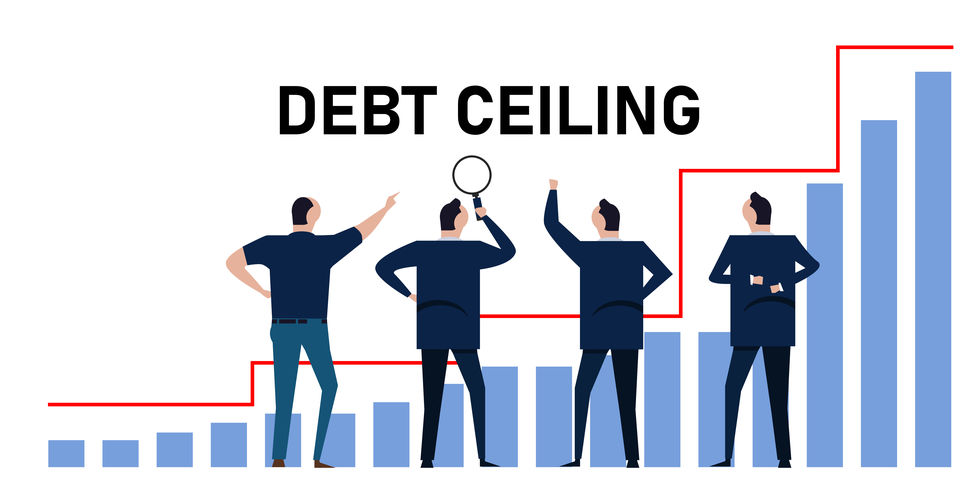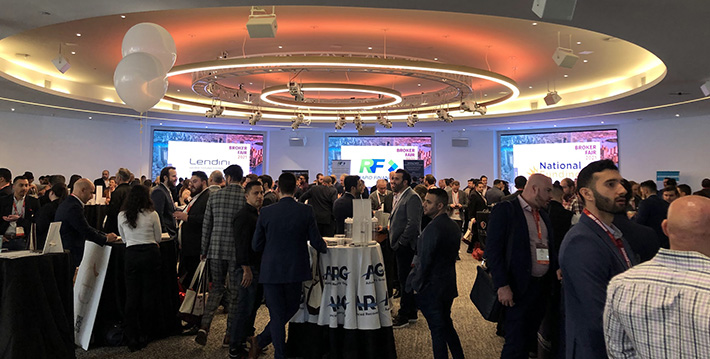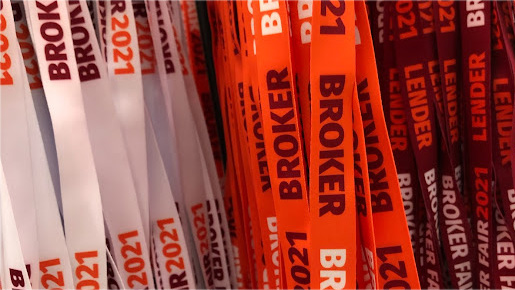David Roitblat is the founder and CEO of Better Accounting Solutions, an accounting firm based in New York City, and a leading authority in specialized accounting for merchant cash advance companies.
To connect with David, email david@betteraccountingsolutions.com.
Articles by David Roitblat
Protecting Your Syndicated MCA Investments
August 24, 2023David Roitblat is the founder and CEO of Better Accounting Solutions, an accounting firm based in New York City, and a leading authority in specialized accounting for merchant cash advance companies.
To connect with David or schedule a call about working with Better Accounting Solutions, email david@betteraccountingsolutions.com.
An increasingly popular way for merchant cash advances businesses to raise capital is by offering syndicated deals. In theory, this structure is simple to understand and fulfill the terms of: in these scenarios, investors put a percentage of the funded deal and get a percentage of the returns. But, as we all know, our industry is dynamic and has inherent risks, and safeguarding one’s hard-earned investments takes on paramount importance.
We saw the pitfalls in the cases of MJ Capital Funding, LLC and 1 Global Capital, along with more recent cases earlier this year, where investors were fleeced of hundreds of millions of dollars that they invested into what they thought were legitimate MCA funding companies.
What happened there is unfortunately investors did not see or understand the importance of having a third party reporting back to the investors and syndicators about how their investment was going, and were misled until it was too late.
So how can investors protect their investments in syndicated MCA deals?
 Know Where Your Money Is Going
Know Where Your Money Is Going
Let’s start with the first thing you can do.
The landscape of MCAs is marred by tales of deceitful entities posing as legitimate funding companies, leaving investors and syndicators in dire financial straits when they are left to hold the bag.
From the outset, it is essential to ensure that the funds committed find their way into the intended bank account- one that is owned by the same entity as the MCA actually funding the merchants. The need for this is underscored by the unfortunate prevalence of fraudulent actors diverting funds to different accounts under deceptive entities. This manipulation obscures the money trail, making it harder to track and detect financial malfeasance, and leave investor funds vulnerable to exploitation.
Vigilance through Allocation Monitoring
To protect your investment against malicious machinations, it is crucial to exercise stringent vigilance and monitor your funds.
If one’s investment is tied to a specific percentage of MCA deals, a diligent verification process is necessary to confirm that the funds contributed align precisely with these deals. Ensuring the MCA business has a quality and comprehensive reporting and CRM system will provide a transparent window into the balance and distribution of funds across each deal. This transparency not only empowers investors but also safeguards their interests against any misallocation.
Additionally, investors should ask about and pay attention to when their portion of the syndication was added to a deal, to make sure you haven’t been added to a bad deal only once they have already started bouncing payments.
Finally, suppose the CRM system shows an available balance on your syndication for a certain amount. In that case, you can talk to the MCA funder about ensuring they always have that amount or more available in their bank account. If the available balance in the MCA’s bank account is less than your available liquid balance then essentially the funder is borrowing (and risking) your funds to fund deals without you benefitting.
Navigating Default Deception
Another way scammers try to fleece syndicators is by telling them deals that they have invested in have defaulted. Through shrewd tactics such as rerouting default payments to alternative accounts or manipulating reporting mechanisms, deceptive entities can evade investor scrutiny and keep their money.
To counteract these tactics, a collaborative partnership with a transparent and independent accounting firm is indispensable. This partnership acts as a source of clarity for both parties: unraveling intricate payment webs and ensuring that defaults are tracked while investors receive accurate insights into their investments’ actual performance that cannot be manipulated by the unscrupulous funder.
A Solution…
The scale of risks are glaringly evident. So what can you do about it?
The message is clear: vigilance is paramount. Minor inconsistencies can snowball into severe financial pitfalls, making it imperative to maintain an unwavering, watchful eye.
But it’s difficult for syndicators to do that, both because they have limited insights as syndicators and because they have their own jobs to worry about without the added stress.
That’s why Better Accounting Solutions encourages all our clients in the merchant cash advance industry to employ this protective framework:
When we come onboard to do accounting for business or investors, we encourage both parties to obtain explicit consent from MCA entities to share all information with the syndicator. Without formal authorization, firms like Better Accounting Solutions are legally bound from sharing crucial information. Trust and transparency rests upon this explicit approval, serving as the conduit for open dialogues and proactive measures. With this permission granted, the accountants can regularly produce independent and up-to-date reports ensuring both parties are on the same page and share a mutual trust. That’s the benefit of third party oversight: nothing is happening in the dark, without anyone’s knowledge.
Encouraging and working towards an honest merchant cash advance industry is a virtue that safeguards investments, draws more investors, and bolsters the credibility of our entire industry.
How Raising The Debt Limit Affects MCA
May 22, 2023 Every few years, particularly during the administration of a divided government, the threat of a default on raising the debt limit of the United States rears up in the political and economic spheres. While both sides tend to play chicken before ultimately settling on a negotiated outcome that they can sell to their bases, the current debt limit crisis feels more serious as the X date of June 1 looms with no settlement in site.
Every few years, particularly during the administration of a divided government, the threat of a default on raising the debt limit of the United States rears up in the political and economic spheres. While both sides tend to play chicken before ultimately settling on a negotiated outcome that they can sell to their bases, the current debt limit crisis feels more serious as the X date of June 1 looms with no settlement in site.
This crisis has a significant effect on various industries, and amongst them is the merchant cash advance business. MCA companies are heavily relied upon by small businesses for immediate financial needs, and understanding what this crisis means for the industry is crucial for getting through it unscathed.
Let’s compare the current landscape to running a business:
When a company opts to increase its debt limit, it essentially seeks to borrow more money, trading liability for an asset. For example, if the company’s equity is worth 100 billion dollars, borrowing doesn’t change this figure as long as the borrowed amount is an idle asset in their account.
The U.S. government should theoretically operate similarly to a regular company, borrowing only what it can pay back, but with the only growing expenses, when the government borrows money and raises the debt ceiling, it doesn’t always have enough funds for repayment.
In addressing its fiscal shortfall, the government operates distinctly from a conventional business. Unlike a company compelled to confront its financial mismanagement head-on, the government possesses the ability to print additional U.S. dollars. However, this course of action inherently devalues the currency.
For the sake of illustration, consider the worth of the dollar as a fixed entity. Suppose every thousand dollars equates to one bar of gold. If we slice this bar of gold into a thousand pieces, each piece represents $1. When the government initiates the printing of more money, it is essentially the government carving that same bar of gold into tinier segments. Meaning, if sliced in 2,000 pieces, the same bar of that once held the value of $1,000 is now $2,000. The total quantity of gold remains constant, regardless of whether it’s divided into 1,000 or 2,000 slices. However, with increased currency in circulation, each dollar—like every slice—holds less value, thereby shrinking everyone’s piece of the proverbial gold bar.
Now that we’ve explained the dangers of wantonly raising the debt limit, how does this affect MCA companies?
The debt limit crisis’s impact on MCAs is pronounced due to the time-value factor of money.
Suppose a mortgage of $100,000, repaid with interest over 30 years, amounts to $300,000. If the value of the dollar reduces significantly over this period – say by 50% – the bank, despite appearing to make a profit, loses money. That’s because the money they receive later has less purchasing power than the same amount ten years prior.
This reality can be acutely felt in periods of high inflation, such as in 2021 and 2022, where inflation neared 9%, and many felt it was closer to 20%. We all feel it during our grocery shops, the prices of experiences, and in other areas of our lives. Here, $100 can only buy what $80 could a couple of years ago, eroding the value of the interest charged.
At Better Accounting Solutions, a number of the MCA businesses we’re working with are concerned with this rapid devaluation of the money they’re funding.
The key factor to consider is the duration for which the capital will be deployed and how it will be recouped. For instance, if you advance $1 million at a 24% factor rate over 24 months and the debt ceiling is raised causing the dollar value to drop, your returns in the second year might be significantly less valuable despite the factor rate. This depreciation means that even though you’re receiving the agreed-upon returns, the funds’ purchasing power is considerably less, translating into a net loss of what would have been 13.5% over the past two years.
However, if you’re giving out (after careful consideration) riskier short-term advances with higher factor rates, daily repayments, and shorter durations, the situation would be different. Here, you’re receiving your return within, say, six months. Even if the dollar’s value decreases by 20% over a year, you’re less affected because your returns are realized in a shorter time and at higher rates, leaving you with a net gain.
Therefore, the debt limit affects MCA providers significantly, whether it’s being covered in the news or not. The devaluation of the dollar, high inflation rates, and other economic consequences of a debt limit crisis can dramatically impact the returns on cash advance businesses, especially those with longer repayment periods. As a player in the finance industry, it’s crucial to consider these elements when making advances or lending money. By factoring in these variables, providers can better protect their interests, minimize risks, and ensure the stability of their operations even during times of economic uncertainty.
Don’t Run To The Big Banks Because of SVB!
April 6, 2023 The weekend of March 10 saw the largest and most significant banking failure in the United States since 2008 until the Federal Government announced its (don’t-call-it-a-bailout) deposit guarantee on March 13.
The weekend of March 10 saw the largest and most significant banking failure in the United States since 2008 until the Federal Government announced its (don’t-call-it-a-bailout) deposit guarantee on March 13.
Silicon Valley Bank and Signature Bank were thought to be niche and regional banks whose actions wouldn’t affect the broader banking industry, but when they had to sell some of the long-term US treasury bonds that they over-invested in at a loss as their worth plummeted when interest rates ballooned, panic quickly spread and launched the first social media run on the banks. To stop this, the Government guaranteed that all accounts in both banks would be guaranteed their full sums, even if they were over the FDIC-insured amounts of $250,000.
So with the benefit of two weeks of hindsight, how did this collapse affect the cash advance industry?
While Silicon Valley Bank catered primarily to the venture capital and tech industries, Signature Bank in New York was known for its welcome embrace of crypto and alt-finance businesses, and many MCA companies had accounts there.
When Signature Bank failed, some of the MCA companies we work with at Better Accounting Solutions started considering transferring their accounts to the “Big Four” banks: JPMorgan Chase, Bank of America, Citigroup, and Wells Fargo.
Their reasoning made sense: Amid criticism of their decisions in the aftermath of this collapse, representatives of the Government and financial regulatory agencies suggested they wouldn’t follow the approach they employed this time round if another bank failed, and instead would weigh up the specific bank’s size and significance in each specific instance to decide whether or not to guarantee depositor’s accounts.
Understanding that their funds would not be protected if there was another crisis in the banks they worked with, several cash advance companies wanted to move their funds to banks that would be considered “too big to fail”, and their money would be guaranteed by the Government in the case of a calamitous collapse. They also wanted to start spreading out their funds across multiple banks to not surpass $250,000 in any of them, to ensure their money was always insured.
There are two issues with this response to these legitimate concerns:
- When a merchant cash advance company starts working and relying on the services of a big bank, they do that without understanding the rules and regulations these banks impose on their clients and how they may be affected, particularly a cash advance company.
Even if you try to hide what your business does, once the bank finds out that you’re in the MCA space-and count on them finding out sooner rather than later-, you’re business will likely be subjected to a thorough, extensive and painful review process to determine whether you’ve broken any of their rules. During this time, they may freeze your accounts (on average for 3 months) and cripple your business’s ability to operate during this time.
- Additionally, when trying to stick the FDIC-insured sum of $250,000 in each bank, you’re limiting yourself to an extremely inefficient and unsustainable way of doing business. It affects your ability to cover your operating costs, fund deals and have money available on hand when you need it.
To responsibly manage these risks while balancing your ability to do business, this is what we’ve been advising our clients:
Before beginning to work with any bank, speak to people involved in the MCA space (brokers, funders and even accountants) to get a list of which banks are friendly to the industry. Ensure that they understand the business and don’t have onerous regulations and practices that will not allow you to run your business without their constant intervention.
Once you know which banks to work with, we advise our clients to open accounts with two of these banks and split their funds equally between them. This ensures they have somewhere to send their money in case one collapses, and if they can’t get it out in time, they still have access to half of their capital while waiting to see how the Government responds. This 50/50 approach allows MCA companies to run and grow their merchant cash advance businesses efficiently during ‘times of peace’ while anticipating and preparing for the consequences of another collapse.
As the Government proved during this crisis, in the age of rapid communication a massive run of the banks can be mobilized within minutes, which forced the Government to (“not”) bail out a small bank to stop a larger collapse. I-and other experts- remain convinced that in the event of another collapse, they’ll be forced to follow this same policy and guarantee all deposits of all sizes at all banks, which is why I confidently advocate for this 50/50 approach.
An important disclaimer: This is an opinion article analyzing the specific collapse of Silicon Valley Bank and Signature Bank, and the response MCA companies should have to it broadly speaking. Every case and merchant cash advance company is different, and for specific advice and guidance, they should contact the author directly.
The Merchant Cash Advance Journey from Broker to Funder
February 7, 2023 As merchant cash advances have become a popular financing option for small businesses in recent years, it has quickly become obvious how lucrative it can be to make the transition from working the phones to working the deals.
As merchant cash advances have become a popular financing option for small businesses in recent years, it has quickly become obvious how lucrative it can be to make the transition from working the phones to working the deals.
The transition from broker to funder can provide significant benefits: by becoming a funder, you have the opportunity to control the entire process from start to finish. Driving the deals, you have the opportunity to make more money, and can establish relationships with banks and payment processing systems that align with your business goals. You can choose a CRM system that best fits your needs and invest in a strong legal and accounting infrastructure to ensure compliance and accountability. Additionally, as a funder, you have the ability to diversify your portfolio and make informed decisions on the types of deals you want to fund, which can lead to higher returns and more stable growth.
While many brokers have the gift of the gab and expertise to sell the advances, they may not have the necessary knowledge of systems and processes in place to manage the risk and operational aspects of the business to go to the next level. Additionally, funders, more than brokers, have the relationships with banks, CRM systems, collection firms, and legal entities that are necessary to run a successful merchant cash advance funding business. The lack of these critical components can limit the growth potential of a broker.
The evolution from a broker to a funder is not just a matter of expanding the business, but it requires a complete overhaul of the systems, processes, and legal frameworks. In this article, let’s explore the key steps that a broker needs to take to become a successful merchant cash advance funder.
Step 1: Having The Right Bank Account
Having a proper bank account is the first step towards becoming a merchant cash advance funder.
Traditional banks, such as Chase and Bank of America, are not built for the rapidly brave new world of financing options, and instead cater to the old models. If they see (what they deem to be) ‘irregular’ incoming and outgoing payment just as you begin offering your first few deals, they can cause you a lot of stress, and even shut your account.
Researching all the options available before you begin funding deals is crucial to build up your business and to avoid stress down the road.
Step 2: Finding The Best ACH Payment Processor
The best way to accept the daily payments owed to you is by working with an ACH payment processor that understands the MCA space. While some traditional banks do offer ACH ‘pulling’ for free, their service is often tied to the amount you have sitting in your account at the bank, which means it’s not working for you to make more. For example, some stipulate that your account needs to have three times the amount that you’re planning to pull daily, just sitting there. So if you’re pulling $200,000 a day, now you have to have $600,000 just sitting there in reserve, which you can’t use to fund other deals you could be making money on.
Instead, finding ACH payment processors that specifically understand the business and your needs will free you up to strive to collect as much as you can, every single day. While it might cost you a little bit, you have the option to now make that calculation of whether it’s better to have free ACHs or have the money available to fund deals and make money off of. A wise man would tell you the latter is the right way to go.
Step 3: Picking A CRM System
A CRM system is an essential tool for tracking the deals, payments, and collections. There are about 8-10 mainstream CRM systems that cater to merchant cash advance funders, and the choice of the CRM system depends on the volume of deals you fund, the presence of syndicators, and the type of deals you fund.
Pick a system that best serves your needs: how it accounts for sub deals and tranches, whether it helps you identify the best and worst performing deals, and if it generates the reports you need to make the most informed choices for your business going forward.
Step 4: Setting Up Your Legal Framework
Setting up a legal framework for contracts is an important step in the journey from a broker to a funder. A proper legal framework ensures that the contracts are enforceable and protects your interests.
It is worth consulting with a lawyer familiar with merchant cash advance to help you prepare thorough contracts for the businesses you advance, your ISO’s and brokers, to ensure you are secure from any attempts to avoid payment and backdooring on your own deals.
Step 5: Collections
In an ideal world, every deal a MCA business funds would get paid pack easily and smoothly, but frequently, that is not the case. Too often, business owners prove why they needed the advance in the first place, and repeat the mistakes and bad habit that puts them in a perilous financial position once again.
If they don’t pay you, your business will quickly begin to suffer and face increasing cash flow problems if you don’t handle it quickly, so having a reliable collection system is crucial for the success of a merchant cash advance funder. It’s good to ensure you understand your options to give yourself the best chance of recovering what you’re owed, including working with a third-part collections firm. The choice of a collection firm depends on the success rate and the level of support provided. A good collection firm should have a well-prepared collection attorney, provide timely support and have a strategy to collect on delinquent merchant cash advances.
Step 6: Accounting
Proper accounting is essential for tracking the overall health and viability of your company. It’s also especially important if you have a partnership or investment in place.
Better Accounting Solutions has been the leading accounting firm in the MCA industry for over a decade, and seen how successful a company can be when all their books are in order and the tremendous pressure and stress caused when it’s not.
Working with an accountant that is familiar with the industry and systems will help you ensure your business is legally compliant, trending in the right direction, and that all deals are in a good place.
Step 7: Lead Sourcing
You’ve set up the business, now you need customers!
There are several ways to find people and businesses who could use a merchant cash advance from your new business. You could reach out to family and friends, research and cold-contact people online or work with lead-generation agencies who will send you lists of hot prospects. Additionally, if you’ve already done all the previous steps listed here, then you can speak to the people you’re already familiar with in the industry to point prospects your way. For example, Better Accounting Solutions has drawn on our years of experience in the industry to connect new funders with brokers we know and trust.
Typically, if you’re a broker becoming a funder, than you already have the relationships with people who can direct customers to your new venture, but I always advise our clients to avoid backdooring or doing something with even the slightest inference of unethical business practices; its bad karma and can only hurt you down the line.
So there you have it, the seven steps of going from broker to funder, and taking your merchant cash advance journey to the next level. Wishing you the best of luck!
Get Ahead in 2023 with These Best Accounting Practices for MCA Companies
January 6, 2023
As we draw the curtain on 2022 with the festive holiday season and prepare to kick off 2023 with a bang- with ambitious goals and the highly anticipated industry meetup at deBanked Connect in Miami on January 19-, your company accountant is gearing up for a busy quarter. Depending on the level of financial organization in your MCA business, filing your annual taxes can be a breeze or a nightmare.
Better Accounting Solutions has been the premier accounting partner in the MCA space for over a decade, and we’ve compiled some of the best accounting practices you can implement now to make your taxes easier next year:
1. Determine your income recognition method and be consistent with it:
This is important for three reasons:
a) Accurate financial reporting: Consistently applying a single income recognition method ensures that the financial statements accurately reflect the income earned by the business. This is important for internal decision-making and stakeholders such as investors and creditors who rely on these statements to assess the business’s financial health.
b) Tax compliance: Proper income recognition is important for tax compliance purposes. The method used to recognize income can affect the amount of tax that a business owes. By consistently applying a single method, the business can ensure that its tax returns are accurate and avoid potential issues with the tax authorities.
c) Simplicity: Consistently applying a single income recognition method can also make it easier for the business to prepare and file its tax returns, as well as to manage its overall financial record keeping. This can save time and reduce the risk of errors or discrepancies.
2. Understand Writeoffs:
As a business owner, it is important to understand how to maximize write-offs in order to reduce your company’s tax liability, and one way to do this is by taking advantage of deductions and credits that are available to the company. For example, businesses can write off typical expenses such as employee salaries, office rent, and supplies. On top of that, you may be able to write off meals, trips, and events if they are being done for the business, so consult your accountant to see what counts.
It is also important to ensure that these expenses are properly documented in the company’s financial records, and that they are being paid for using company cards accounts rather than personal accounts for business expenses. This is because personal expenses are not tax deductible, whereas (many) business expenses generally are. By using clearly delineated company accounts, businesses can ensure that they are able to properly document and claim these expenses as deductions on their tax returns.
3. Documentation, Documentation, Documentation!
Businesses and governments are run on the back of paperwork, and ensuring you are on top of your documentation and records is the best way to ensure smooth operations and compliance. This includes making sure:
All your business licenses and registrations are in order.
Your W-2’s are filed by the end of January.
Determine who you need to get W-4’s and W-9’s from:
It’s important to know how to categorize your partners to establish clean and complete records. Filing inconsistent records, internally or compared to their paperwork, can cause issues and complications down the road when you file your taxes.
For example, an ISO is typically classified as an independent contractor rather than an employee. As such, an ISO would typically need to fill out a W-9 when working for you, rather than a Form W-4.
Form 1099 is a tax document used to report various types of income other than wages, salaries, and tips that are reported on a Form W-2. Form 1099s are typically issued by businesses or other organizations to contractors or other independent workers for services rendered or income received.
Independent contractors, including ISOs, are responsible for paying their own taxes and are not entitled to the same employment benefits as employees, so you’d need to get a W-9 form from them and then give them a 1099 based on the information they gave you.
Better Accounting Solutions recommends not giving syndicators 1099s from you because we’ve found that many syndicators have different methods of reporting their recognized income to the IRS, and we do not want to report differing numbers to the IRS, which can lead to obvious complications.
It is important for businesses to correctly classify workers as either employees or independent contractors to ensure that the proper tax forms are used and that the correct amount of taxes are withheld or paid.
Speak to an experienced financial expert to determine how to classify your partners, vendors and employees.
Get a W-9 from all of your partners (ISO’s, etc.) before you pay them, otherwise, you’ll have to chase them for paperwork when they’ll have no incentive to get it to you in a timely manner.
4. Ensure You Are Getting The Best Financial and Accounting Advice:
If there is a major theme in this piece, it is the importance of having access to expert financial and accounting advice and guidance, particularly in an industry as complicated as merchant cash advance.
Whether you work with an in-house CPA or work with a large accounting firm, do consistent check-ins and self-audits to make sure your business is getting the premier service it deserves, which will certainly save you a significant amount of stress, time and money.
Your Default Rate Is Too Low, And It’s Hurting You
November 22, 2022 There may be no word as terrifying to stakeholders in the merchant cash advance business than the term ‘defaults’.
There may be no word as terrifying to stakeholders in the merchant cash advance business than the term ‘defaults’.
In an industry where a significant portion of revenue is generated from daily or weekly automatic withdrawals from a merchant’s bank account, defaults can cause deep and lasting problems. Not only do they eat into profits, but they damage relationships with banks and processors- both of which are essential to the success of any merchant cash advance company. Defaults can also be contagious: if one merchant in a large portfolio decides to stop making payments, it can have a ripple effect that leads to other merchants doing the same thing.
All these are reasons why MCA companies go to great lengths to avoid defaults at all costs: they exhaustively screen merchants before approving them for funding and do all the due diligence needed to ensure they can follow realistic payment plans. They also attach a fee to every deal to cover the percentage of the deal they expect will not come back, and conventional thinking would be to aim to keep that number as low as possible.
That’s a lot of work to keep that default rate low, but what would you think if I were to contend your default rate is too low, and it’s hurting your bottom line?
Fear of defaults is paralyzing MCA funders and inevitably leading them to leave opportunities-and money- on the table.
Better Accounting Solutions has been the leading accounting firm in the MCA space for over a decade, and has seen this across the board:
Many MCA companies have adopted a risk-averse approach to avoid defaults, opting for sure-fire deals in higher positions, rather than taking calculated risks that could enhance their bottom line. In the name of capitalizing on low-risk deals with a lower chance of default, many companies choose to fund deals where they charge smaller fees than what they could be charging if they choose to fund deals others are wary of taking.
Let’s look at two deal examples for an example of my thesis:
Average Andrew is the perfect merchant for an MCA company. He is getting a $100,000 advance with a deal length of 7 months (140 days) and with his rock-solid history, his default rate is a meager 6%. The RTR on the deal is 44%, the UR fee is 7%, broker’s commission is 10%, meaning the profit on this deal will be $35,500- a net unit profit percentage of 35%, profiting $5000 a month. He is a great client, and a pleasure to work with.
Now let’s examine his buddy, Reformed Ricky. He’s made some mistakes in the past and now wants a business advance to grow the business he believes is The One. No one else wants to touch him, so you offer him a deal of $35,000. Because he is a riskier advance proposition, you can raise the RTR to 49%, and the UR fee to 12%. On a deal like this, the commission is around 14% and the default rate will be a whopping 18% on a merchant like this, but the profit to be made on this deal is $10,150- a 29% net unit profit, getting $3,383.33 monthly profit over the length of the deal.
Now, looking at the structures of both deals, why would I advocate that someone advancing Reformed Ricky instead of Average Andy? What’s the advantage of working with the weaker merchant over the perfect one?
It’s simple:
Because of his history, you can set the duration of Reformed Ricky’s deal to 60 days (3 months). That means according to the terms of his deal, your profit is 9.67% a month. You’ll be stunned to learn that when you break down your monthly profit on Average Andy’s deal, it is a considerably smaller percentage of 5.00%!
 This means every month you’re making more back on the smaller deal, and are getting it to work for you by placing it into new deals and generating more income for you, because of its shorter term. If you’re only taking deals with longer outstanding balances, it will take you a considerably longer amount of time just to make a smaller profit percentage.
This means every month you’re making more back on the smaller deal, and are getting it to work for you by placing it into new deals and generating more income for you, because of its shorter term. If you’re only taking deals with longer outstanding balances, it will take you a considerably longer amount of time just to make a smaller profit percentage.
On top of this, we also have to account for the compounding effect you will quickly be seeing when you take these ‘riskier deals: because you’re earning more money per month due to the shortened duration of supposedly weaker deals, you will be able to turn it around more times per year, supercharging your growth quicker than what you’d be seeing you stuck to only ‘traditionally-safe’ deals.
I’m not advocating for funders and brokers to be irresponsible and create a new and much less entertaining version of The Big Short, throwing money around to people that don’t stand a chance of paying it back.
I am saying that they should consider funding merchants and positions they were wary of till now, and responsibly assessing the opportunities and upside for them at those positions.
Of course, this doesn’t mean that you should mindlessly funnel money into every deal that comes your way. You still need to be responsible and vet your investment opportunities carefully, and of course, if it turns out you’re picking the wrong deals and your default rate explodes, you will have to reevaluate your approach.
However, working from a place of fear is not the way to grow and thrive, certainly in this business. Moreover, by avoiding risk altogether, MCA companies are likely to become less competitive over time. After all, it’s only through taking risks and innovating that businesses can thrive in today’s rapidly changing world, especially in the rapidly evolving and growing MCA industry, where more and more people are seeking to find their niche.
A great number of successful investors in MCA companies have complained to me that their partners are too conservative with the deals they are choosing to fund and leaving too much capital in the bank, costing the investors higher facor rates instead of working for them.
This approach is a way to break away, and ahead, of the pack, because only by taking the opportunities others keep passing by will MCA companies be able to grow and compete in the long run.
Why Participating in Industry Events Matters
September 29, 2022Guest Post by David Roitblat, Better Accounting Solutions
 In just under a month, on October 24th, hundreds of members of the merchant cash advance community will descend on Times Square in New York City, at the New York Marriott Marquis, for deBanked’s Broker Fair event. Every aspect of the industry will be represented, from brokers and ISO shop reps to specialized lawyers and accountants.
In just under a month, on October 24th, hundreds of members of the merchant cash advance community will descend on Times Square in New York City, at the New York Marriott Marquis, for deBanked’s Broker Fair event. Every aspect of the industry will be represented, from brokers and ISO shop reps to specialized lawyers and accountants.
I will be there representing my business, Better Accounting Solutions, and it will be the upteenth time I’ve attended this tremendous event. But attending industry pow-wows was not how I envisaged spending my working hours at the start of my career.
When I worked at entry-level jobs in accounting firms, I didn’t think attending these events was worth the time and financial investment, instead choosing to believe that if I put my head down and worked for the 24 hours that the events were being held, I’d be positioning myself better for my professional future. And when I opened Better Accounting Solutions in 2011, that attitude didn’t change, especially now that it was my own time and money on the line.
This whole approach changed on the advice of a mentor a few years in. Hearing me explain how I thought the business could be scaling quicker than it was, he suggested attending, and participating, in an accounting conference that was coming up. When I pushed back with my familiar list of grievances, he didn’t attempt to refute them, instead repeating his advice, adding that how could it possibly hurt.
I attended that first conference, and haven’t looked back since.
All the elements of industry events that I had previously dismissed proved to be incredibly valuable and are an integral part of Better Accounting Solutions’ story, and how we got where we are today.
It’s why I encourage everyone that’s involved in the MCA business to shake off the headsets and get their heads out of the screens, and to take this opportunity to connect with real people.
Here are some of the key takeaways that I got out of that first experience that remain true to this day:
1. You never know who you’ll meet. Industry events bring together people from all different backgrounds and experiences, and you never know who you might meet and what kinds of connections you might make. Many of the people I met at these conferences, especially at Broker Fair once we had established ourselves in the MCA space, have gone on to be my mentors, advisors, supporters, clients, and friends.
 2. It’s a great way to build your network. I came into the industry very green, feeling my way around by letting my work do the talking. But when I opened my own business, I needed to let my actual talking do the talking, and learn the art of networking. Networking is all about building relationships, and industry events provide an excellent opportunity to meet new people and start making connections that can help you in your career.
2. It’s a great way to build your network. I came into the industry very green, feeling my way around by letting my work do the talking. But when I opened my own business, I needed to let my actual talking do the talking, and learn the art of networking. Networking is all about building relationships, and industry events provide an excellent opportunity to meet new people and start making connections that can help you in your career.
3. You can learn from others. When you’re working in your own space, it’s possible to inadvertently build a bubble around yourself, insulating yourself from current trends and happenings in the business. Industry events are a great way to learn from the experiences of others in your field and hear about the latest developments and advances.
4. It can help you find a job and advance your career. Sometimes, all you need is an opportunity to get your foot in the door, and events like Broker Fair are great places to find that chance. At industry events like these, it doesn’t take a lot to bump into industry figures and leaders, and if you connect with them and hit the right notes, these people just might be your next employer, mentor, partner or client.
As a token of gratitude for all that I’ve gotten from it over the years, Better Accounting Solutions is a sponsor of Broker Fair, a testament to our belief in this event. I’ve gotten tremendous value from Broker Fair, and it’s why I’m such an advocate for events like it.
We can’t let ourselves be held up by the reasons we think of to avoid attending, for a supposed lack of finances or time. Avoid naively thinking like I did, that you can grow in this business if you keep doing exactly what you’ve been doing until now, minimizing yourself in the very same circle. This is the best investment you can make in yourself right at this moment.
And once you take the plunge and make a firm decision to come, stop feeling guilty and that you should be contained in your office instead. Networking is real work, and can only come when you let go of that guilt and allow yourself to think bigger.
It’s at places like these where I met people that lent me their ears and gave me a chance, a major factor in Better Accounting Solutions earning our reputation as leaders in specialized accounting for the merchant cash advance industry.
It happened for me, and it can happen for you too.






























